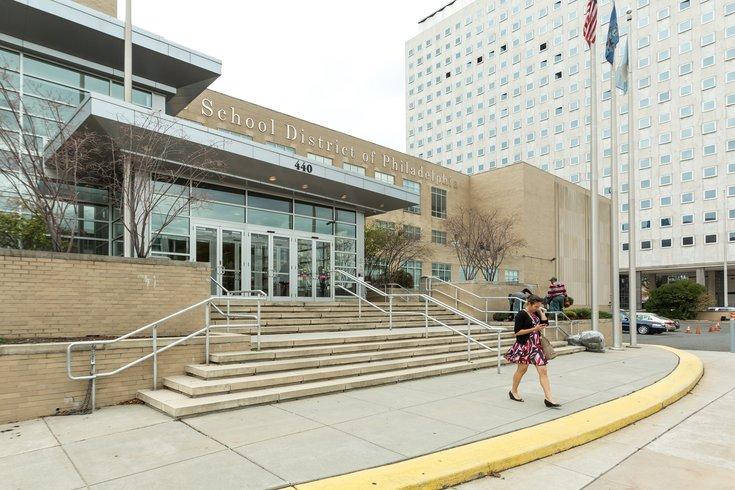Philadelphia School District Under Fire for $700K in Fraudulent Disbursements
The Philadelphia School District is currently embroiled in controversy following the discovery of approximately $700,000 in fraudulent disbursements over the last fiscal year. Investigations have revealed payments made to unapproved vendors and multiple instances of duplicated transactions. This alarming situation has triggered immediate internal reviews and collaboration with law enforcement agencies to assess the full magnitude of the financial irregularities and to establish safeguards against future abuses.
Key issues identified by investigators include:
- Payments issued to vendors lacking proper verification and documentation
- Irregularities in invoice authorization processes
- Deficient oversight within procurement and payment workflows
| Fraud Category | Amount (USD) |
|---|---|
| Duplicate Transactions | $215,000 |
| Payments to Unauthorized Vendors | $380,000 |
| Other Payment Errors | $95,000 |
District leadership has committed to strengthening financial controls and enhancing transparency to protect taxpayer dollars. Community members are demanding clear explanations and accountability as the investigation progresses.
Financial Governance Gaps Exposed by Investigation
An internal probe has brought to light critical weaknesses in the Philadelphia School District’s financial management systems, which permitted nearly $700,000 in fraudulent payments to slip through undetected. The audit pinpointed inadequate segregation of duties, poor transaction oversight, and lax authorization procedures as primary factors enabling exploitation. These deficiencies contravene best practices in public sector financial governance and highlight the urgent need for reform.
Specific vulnerabilities uncovered include:
- Absence of Independent Verification: Payment approvals were frequently rubber-stamped without thorough review.
- Incomplete or Missing Documentation: Numerous transactions lacked essential supporting records.
- Irregular Reconciliation Practices: Financial accounts were not reconciled promptly, allowing discrepancies to accumulate unnoticed.
Experts recommend immediate implementation of enhanced internal controls, comprehensive staff training on financial compliance, and the establishment of robust audit trails to mitigate future risks.
| Control Weakness | Consequences | Suggested Remediation |
|---|---|---|
| Segregation of Duties | Unauthorized approvals and payments | Separate responsibilities for approval and payment processing |
| Transaction Monitoring | Delayed identification of fraudulent activity | Deploy real-time transaction monitoring systems |
| Documentation Compliance | Unsubstantiated financial transactions | Enforce strict documentation and record-keeping policies |
Consequences for District Resources and Educational Services
The revelation of nearly $700,000 in fraudulent payments has intensified concerns about the strain on the Philadelphia School District’s financial resources. These diverted funds, which could have been invested in enriching educational programs and upgrading facilities, instead represent a significant setback amid already tight budgets. District administrators now face the challenge of revising financial safeguards to prevent further losses and ensure optimal allocation of resources for student achievement.
There is growing apprehension regarding the potential repercussions on essential student services. Budget constraints may lead to reductions or delays in critical areas such as counseling, special education, and extracurricular programs. Parents and educators are particularly worried about:
- Decreased availability of mental health and support personnel vital for student well-being.
- Limited procurement of updated learning tools and technology necessary to close educational gaps.
- Erosion of confidence in district leadership which could dampen community involvement and morale.
| Service Area | Potential Impact | Proposed Mitigation |
|---|---|---|
| Student Counseling | Staff shortages | Temporary staff reassignments |
| Special Education | Service delays | Seeking additional grant funding |
| Educational Materials | Outdated resources | Comprehensive budget reassessment |
Calls for Robust Auditing and Greater Transparency
In light of the financial irregularities, city officials are advocating for a thorough revamp of auditing procedures within the Philadelphia School District. Proposed reforms include deploying sophisticated transaction monitoring technologies, conducting frequent independent audits, and instituting mandatory rotation of financial staff to reduce risks of collusion and fraud.
Transparency is also a central focus, with recommendations aimed at increasing public access to financial data to rebuild trust. Suggested initiatives encompass:
- Quarterly public disclosures of financial statements and expenditures.
- Formation of an autonomous audit oversight committee.
- Implementation of whistleblower protection policies to encourage reporting of misconduct.
| Recommended Initiative | Anticipated Benefit |
|---|---|
| Advanced Monitoring Software | Immediate detection of suspicious transactions |
| Independent Audit Committee | Unbiased evaluation of financial activities |
| Whistleblower Protections | Enhanced reporting and early fraud identification |
Looking Ahead: Strengthening Financial Integrity in Philadelphia Schools
The Philadelphia School District remains actively engaged in uncovering the full details surrounding the nearly $700,000 in fraudulent payments. Officials have vowed to bolster oversight mechanisms and implement comprehensive reforms to safeguard public funds. As the investigation continues, stakeholders eagerly anticipate transparent updates and decisive actions to restore confidence and ensure fiscal responsibility within the district’s educational system.








